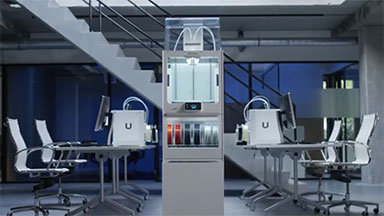New 2nd Gen AMD EPYC Processors Hit Market
The processors offer performance for database, commercial high-performance computing and hyperconverged workloads.

Image courtesy of AMD.
Latest News
April 24, 2020
AMD is extending the 2nd Gen AMD EPYC processor family with three new processors that combine the balanced and efficient AMD Infinity architecture with higher speed “Zen 2” cores for optimal performance on database, commercial high-performance computing (HPC) and hyperconverged infrastructure workloads.
The three new processors, the AMD EPYC 7F32 (eight cores), EPYC 7F52 (16 cores) and EPYC 7F72 (24 cores), expand 2nd Gen AMD EPYC performance leadership into workloads that can leverage up to 500 MHz of additional base frequency, and large amounts of cache.
The AMD EPYC 7Fx2 processors provide new performance capabilities for workloads including database with higher SQL Server performance, hyperconverged infrastructure and commercial high-performance computing (HPC).
“AMD EPYC continues to redefine the modern data center, and with the addition of three powerful new processors we are enabling our customers to unlock even better outcomes at the heart of the enterprise market,” says Dan McNamara, senior vice president and general manager, server business unit, AMD.
The new 2nd Gen AMD EPYC 7Fx2 processors provide per core performance and breakthrough value, while adding the highest per core performance of the EPYC family.
The performance of these new processors comes from a balanced architecture that combines high-performance “Zen 2” cores, innovations in system design like PCIe 4 and DDR4-3200 memory, and the AMD Infinity architecture, to provide customers with optimum system performance that enables better real-world application performance.
Ecosystem Growing with AMD EPYC
The ecosystem of OEMs, cloud providers, ISVs and IHVs using 2nd Gen AMD EPYC processors continues to grow, with existing OEMs and new partners adopting the new AMD EPYC 7Fx2 processors.
Dell Technologies will support all three processors across its \lineup of AMD EPYC based Dell EMC PowerEdge servers, including the R6525.
HPE continues to expand its offerings using 2nd Gen AMD EPYC processors with latest support of HPE SimpliVity, an intelligent hyper-converged infrastructure solution. HPE will also support all three AMD EPYC 7Fx2 processors on the recently announced HPE Apollo 2000 Gen10 Plus system, HPE ProLiant DL385 Gen10 Plus server and HPE ProLiant DX servers.
IBM Cloud is a cloud provider offering its clients the AMD EPYC 7F72 processors in their bare metal offering, providing access to fast, high core-count dual socket bare metal servers. Additionally, IBM recently announced the availability of its first bare metal server powered by the AMD EPYC 7642 processor.
Lenovo will support the new AMD EPYC 7Fx2 processors on its ThinkSystem SR635 and SR655 platforms. These new higher frequency 2nd Gen AMD EPYC processors, with an increased core clock speed up to 15%, in the single socket ThinkSystem platform, provides customers with greater options for workloads. Lenovo’s one socket optimized platforms with these new processors allow customers to deploy these platforms where traditionally two socket systems were used, providing power and SW licensing costs savings.
Microsoft recognizes the impact the new AMD EPYC 7Fx2 processors have on providing Microsoft data platform customers the best experience possible, including an up to 17% higher SQL Server2 TPM per core performance.
Nutanix, in conjunction with Hewlett Packard Enterprise, announced that it expects that Nutanix HCI software will be supported on select AMD EPYC based HPE ProLiant servers by May. As well, HPE announced the upcoming availability of AMD EPYC 7Fx2 processors on HPE ProLiant DX servers in Q3.
Supermicro is launching the first blade platform built for 2nd Gen AMD EPYC processors with immediate support for the new AMD EPYC 7Fx2 processors combined with integrated 25G Ethernet and optional 100G EDR InfiniBand support with 200G HDR in the near future. In addition, all Supermicro A+ platforms including Ultra, GPU, WIO, Twin and Mainstream systems will support the new AMD EPYC 7Fx2 processors immediately.
VMware is adding support for the new 2nd Gen AMD EPYC 7Fx2 processors, enabling customers access to powerful virtualization platforms.
The new processors are available now through multiple OEMs and IBM Cloud.
Sources: Press materials received from the company and additional information gleaned from the company’s website.
More AMD Coverage

Subscribe to our FREE magazine, FREE email newsletters or both!
Latest News
About the Author
DE’s editors contribute news and new product announcements to Digital Engineering.
Press releases may be sent to them via [email protected].






